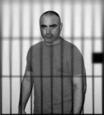Combatives is a loose term indicating a collection of actions that tend to deal mostly with the conflict phase of an engagement. The whole purpose of combatives is to teach you in the shortest time possible how to realistically protect yourself. It must be simple, else it isn't combatives.
In many systems, there is an incremental learning process. Each level there are more intricate techniques. For the systems that require this, it is, well, required. For the street, and for combatives itself, it isn't required. There should be no concept, technique or learning stage that requires a student to be practicing for a certain amount of time before they can begin to learn another technique. I know some will disagree with this, but, big deal. The fact of the matter is that it's not in the students interest to learn the 'advanced' stuff someway down the line, the student needs to be able to protect themselves now, with the most effective material being taught right from the first class. In a street context, all the teachings should simultaneously be both basic & advanced. Intricate techniques simply wont work. And if you disagree, try to remember back to when you last had your head banged against the pavement, or the sweet sound of two or three sets of fist/feet bouncing off your head. Can you recall how hard it was to think, to process information? No? Maybe arrange a little reminder by having your head fairly gently banged against some padded mats, or have some students open palm slap you about the head, repeatedly. Loss of cognitive thinking is natural to all of us in conflict, for various reasons. People make things too difficult, and dangerous, by not realising what is key to training.
So, with this in mind, CPP have decided to scrap the 'level' system. Why is it needed? I sure as heck don't know. What is one meant to put into these levels? Sooner or later it would have to be more & more complex.. We're to teach a foundation Instructor level, and then specialize in content within that, and expand upon that in standalone courses. An example would be our anti-crime/anti-terrorism module, now being expanded this week into a full course. We have no advanced techniques, no advanced training. It is all basic, and will remain so. Drilled to a high standard of excellance.
Combatives in a finite way of teaching. If a system is concerned about trying to keep students interested, they've already forgot the foundation of why someone teaches. It is to share our experience with another with the view to it enriching their life. Speaking purely from a street combative view, care must be took not to bastardise teachings, simply on the basis students/potential students have a 'demand' for certain things to be taught. Whilst it is true, in business, it is smart to supply a demand, the principle rule of teaching, must be not for business, but to teach others how to be safe. Granted a business needs cash to survive, so it must be a consideration, but not the consideration.
This will of course mean that within CPP we can surely only have students with us for a certain amount of time. For us, the most important thing is we stick true to the principles of combatives, as this is what will keep our students safe. And not diluting aspects to make way for other things that may entice a students interests some more. Many systems have started out well, and, imo, have lost their sense of indentity over this very reason. CPP prefers to have a student for a limited amount of time, training them to a superior standard. They will leave our system fully competent to deal with street violence. They'll have the benefit of years of active gang violence poured into their training system. The culmination of which - if i had to stand side by side with someone, right after their first class, it'd be with any of our students. Job done.
Stay Safe
Wayne
Personally trained by numerous noted martial artists, and trained to Senior Instructor level in another reality based system, Wayne's primary training is real world experience.
For thirteen years Wayne was a gang leader, heavily involved in crime in Northern Ireland. Having many life-threatening experiences, including numerous attacks by terrorist organisations, Wayne has first hand, real life knowledge of how criminals work, and of how terrorists operate on civilians.
Having paid his debts to society, Wayne began to slowly move away from that lifestyle. Embarking on an intense period of Hatha Yoga study, Wayne became a Yoga Teacher in 2001.
2005 saw Wayne learning Reiki level 1. Wayne became a Reiki Master in 2006. Having been mentored by one of the World's formost Reiki researchers, Wayne has founded a somewhat unique Reiki forum. He continues to daily give advice & support worldwide.
In 2010, Wayne became a Kuji-in teacher. Kuji-in is a spiritual practice uniting mudras (finger locks), mantras & visualization. An intensely profound spiritual experience.
Wayne is extremely passionate about assisting others acheive thier potential. His all encompassing system - Civilian Personal Protection, aims to stop people being victims of crime, to enable criminals to leave that path, and to create more health & happiness within oneself.

Post new comment
Please Register or Login to post new comment.